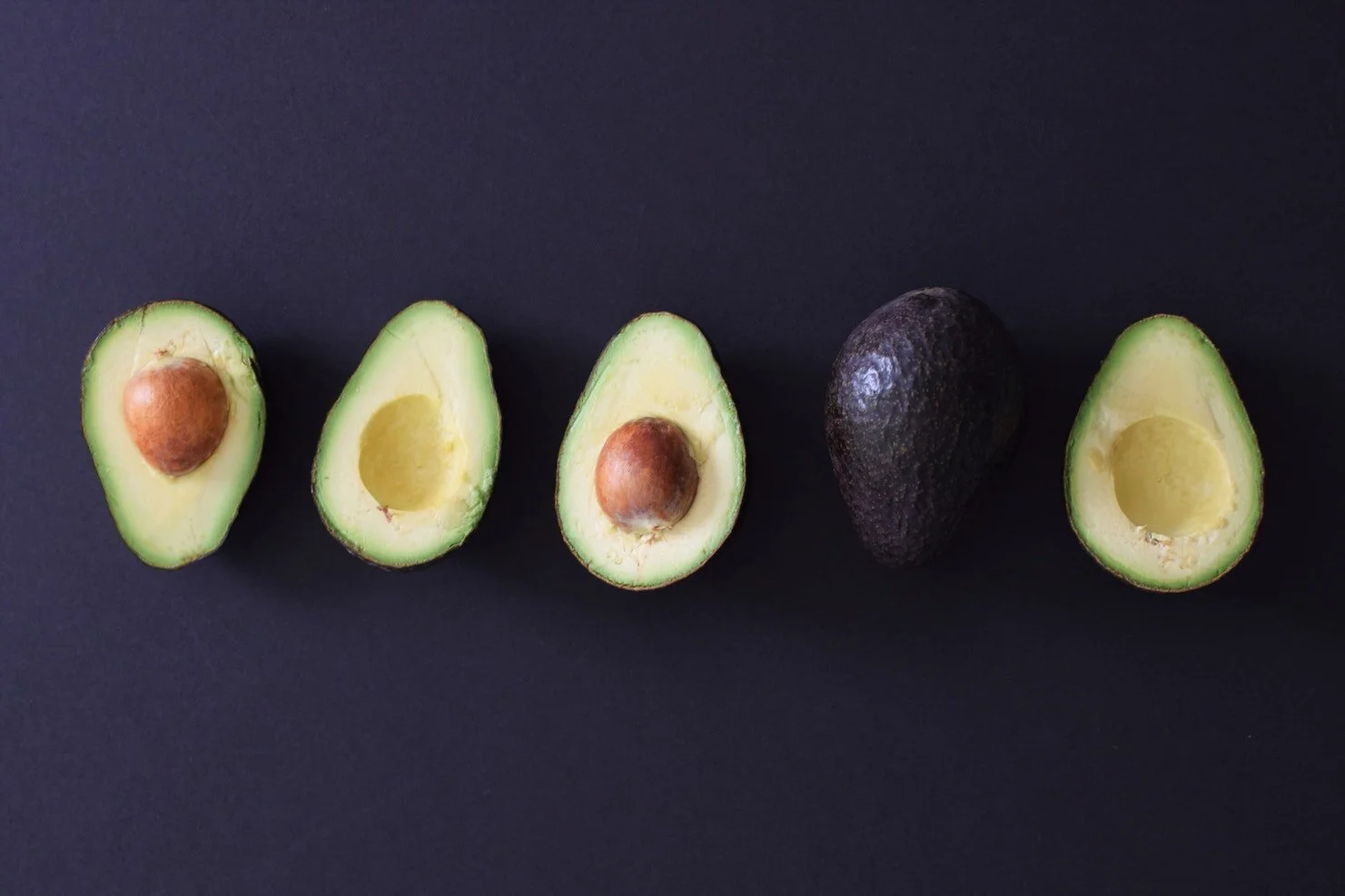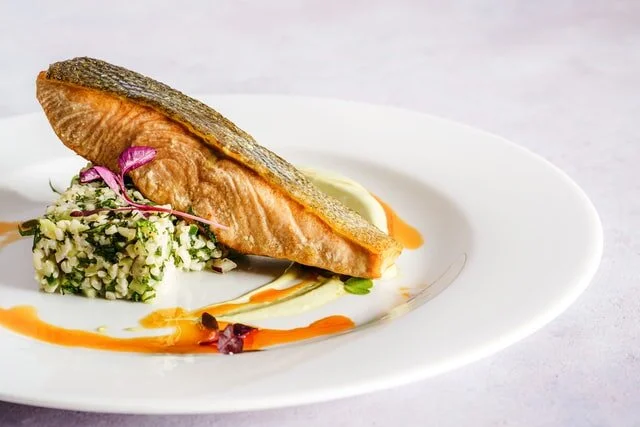Common Foods with Super Effects
10 Superfoods you can easily incorporate into your diet for better health.
"Super Foods"
We have all heard the word "superfood", but what is so super about these foods?
There is always some new trendy food that is meant to keep you super healthy, from kale, goji berries, LSA, aloe vera and matcha. So, what makes them more nutritious or better than any other food? And do you need to go out and buy all these foods and add them to your diet?
Superfoods are natural foods that contain high amounts of concentrated nutrients and are rich in antioxidants and polyphenols. Vitamins, essential minerals, healthy omega 3 fatty acids and fibre found in superfoods support every aspect of your health.
The antioxidants found in superfoods protect against the harmful effects of free radicals, which damage cells leading to the development of cancer, heart disease and ageing. Some superfoods contain Polyphenols, they are a category of chemicals that naturally occur in plants and are beneficial in protecting us against digestive disease, diabetes, neurodegenerative disease, and cardiovascular disease.
Lucky for us we do not need to go out and buy a whole lot of food we have never heard of and have no idea how to cook to benefit from superfoods. Below are ten common foods that when added to your diet, will boost it to superman level.
1. Oats
Simple oats are one of the superstars of food; oats contain large amounts of soluble fibre beta-glucan. Studies have shown that beta-glucan can lower blood cholesterol levels - Lowering LDL (the bad cholesterol) and increased HDL (the good cholesterol). (Sima, Vannucci, & Vetvicka, 2018). It's been reported that beta-glucan has anticancer, anti-diabetic, anti-inflammatory and immune-modulating effects due to its role in gut microbiota health. (Sima et al., 2018). Oats are also low GI (glycaemic index), making them a perfect start to the day.
2. Berries
Berries are a true superfood, with the phytochemicals that give them their colour shown to have cell-protecting antioxidant capacities. Flavonoids in berries work as both an anti-carcinogen, an antioxidant and protects against cancer and heart disease (Rodríguez-García, Sánchez-Quesada, Gaforio, & Gaforio, 2019). Berries are a great source of antioxidants, such as anthocyanins, ellagic acid, and resveratrol. These antioxidants have been shown to combat the oxidative stress that contributes to ageing (Kristo, Klimis-Zacas, & Sikalidis, 2016). Bonus berries also contain vitamin C, folic acid, fibre, carotenoids, and hundreds of other compounds.
3. Nuts
Nuts in moderation are super healthy: think hazelnuts, walnuts, almonds, pecans, brazil nuts. Nuts contain protein, fibre, vitamins such as vitamin E, folic acid and minerals such as magnesium, zinc, calcium, iron and potassium. They also contain monounsaturated fats, which can assist in reducing the risk of heart disease (Gallagher et al., 2000).
Have a small handful of nuts as a snack, as nuts are a fantastic source of protein adding in reducing those sugar cravings. Sprinkle on your salad to add some crunch or add into a stir-fry. Remember to keep it to a small handful serve per day as they are calorically dense.
4. Leafy Green Vegetables
Leafy greens vegetables such as spinach, Bok Choy, cabbage, broccoli, mustard greens, rocket and kale are a fantastic source of folate, vitamin A, calcium and vitamin C. They are low in sodium and fat and high in fibre. They are rich in phylloquinone, lutein, nitrate, folate, α-tocopherol, and kaempferol which assist in protecting memory, with a recent study showing that just one serve a day of leafy green vegetables slowed cognitive decline in ageing (Morris et al., 2018).
Try steaming them and serving with a teaspoon of olive oil drizzled over the top, balsamic vinegar, and pepper. Add a cup of leafy greens to your salad, add into a stir fry or add a handful into a smoothie or soup.
5. Avocados
Avocados are an excellent source of vitamins E, C, K, vitamin B-6, riboflavin, niacin, folate, pantothenic acid, magnesium, potassium and antioxidants lutein, and beta-carotene. Avocados are high in healthy omega-3 fatty acids and monounsaturated fatty acids, the "good fats", shown to lower LDL (bad cholesterol) and increase HDL (good cholesterol) (Gallagher et al., 2000). And even better that they contain beta-sitosterol, a compound that can reduce the total level of cholesterol in the body (Racette et al., 2010).
Use instead of butter on your toast, add ¼ avocado to your smoothie to make it creamy, have an avocado and pesto pasta.
6. Pumpkin
The whole pumpkin, including the seeds, is a powerhouse of a vegetable. Pumpkin is high in fibre, potassium, vitamin C, vitamin E, B5, calcium and beta- carotene. Beta carotene is converted to vitamin A in the body. It has been shown to be protective against certain cancers, asthma, heart disease and age-related macular degeneration (Kim, 2015).
Pumpkin seeds are high in magnesium and a source of manganese, iron, zinc and copper. They are high in omega-3 and omega-6 fatty acids, once again helping protect you against heart disease. Sprinkle some on your salad or snack on a small handful.
7. Tomatoes
Tomatoes are rich in potassium, vitamin C and high in antioxidant metabolites such as carotenoids and phenolic compounds. Tomatoes are high in practical lycopene, which neutralizes free radicals and protects against cancer and degenerative diseases (Raiola, Rigano, Calafiore, Frusciante, & Barone, 2014). To obtain the best bioavailability of lycopene in tomatoes, the tomatoes are best eaten cooked with healthy fat added such as olive oil.
Fry them up for breakfast, add to your pasta dish or just put in your salad.
8. Onions
The humble onion is an excellent source of vitamin C, sulphuric compounds, flavonoids and phytochemicals. Onions contain sulphides, the most common minerals in our body; sulphides assist with protein synthesis and building of cell structures. Sulphides also have anticancer and antimicrobial properties.
The flavonoid quercetin in onions is an antioxidant that has been shown to help prevent cancer. It has also been shown to reduce the symptoms of bladder infections, boost the immune system, increase detoxification and reduce inflammation (Anand David, Arulmoli, & Parasuraman, 2016).
Onion is also a great source of prebiotic fibre inulin, helping build a healthy gut microbiota. Onion also contains Allium which has antibacterial properties, protecting against urinary tract infection-causing bacteria E. Coli and Proteus.
Eat them raw or cooked, use them to add flavour.
9. Oily Fish
Eating oily fish reduces the risk of heart disease, lowers the risk of stroke, depression, and mental decline, due to the omega-3 fatty acids found in fish such as salmon, sardines, tuna and mackerel.
For women that are breastfeeding or pregnant women, the DHA fatty acids in oily fish are beneficial for the neurodevelopment of infants (Anand David et al., 2016).
Have two to three 200g serves per week, try sardines on toast, baked salmon or have a tin of tuna with your salad.
10. Cocoa Powder
Yes! That is right chocolate, but not your highly processed flavoured chocolate bar but cocoa, the raw ingredient in chocolate. Cocoa is rich in polyphenols, particularly flavonoids that have antiviral, anti-allergic, antiplatelet, anti-inflammatory, antitumor and antioxidant activities.
Add organic cocoa powder to non-dairy milk for a hot chocolate, add cocoa to smoothies, chia puddings, eat small amounts of dark chocolate that has a high percentage of cocoa.
Building a super diet is easy; snack on a handful of berries, add broccoli and pumpkin to your dinner three times over a week, swap white bread for whole grain, eat oily fish three times per week. Remember, do not become obsessed with one superfood; it is the combination of foods together that will give you the best health benefit.



